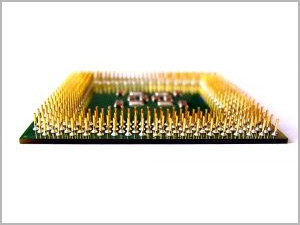Smart Card's Types : CPU
Introduction

These cards have on-card dynamic data processing capabilities. Multifunction smart cards allocate card memory into independent sections or files assigned to a specific function or application. Within the card is a microprocessor or microcontroller chip that manages this memory allocation and file access. This type of chip is similar to those found inside all personal computers and when implanted in a smart card, manages data in organized file structures, via a card operating system (COS).
Unlike other operating systems, this software controls access to the on-card user memory. This capability permits different and multiple functions and/or different applications to reside on the card, allowing businesses to issue and maintain a diversity of ‘products’ through the card. One example of this is a debit card that also enables building access on a college campus. Multifunction cards benefit issuers by enabling them to market their products and services via state-of-the-art transaction and encryption technology.
Specifically, the technology enables secure identification of users and permits information updates without replacement of the installed base of cards, simplifying program changes and reducing costs. For the card user, multifunction means greater convenience and security, and ultimately, consolidation of multiple cards down to a select few that serve many purposes.
Types of contact type CPU ICs available:
NXP JCOP series (JCOP10, JCOP21)
Infineon JTOP series
Infineon SLE66CX series